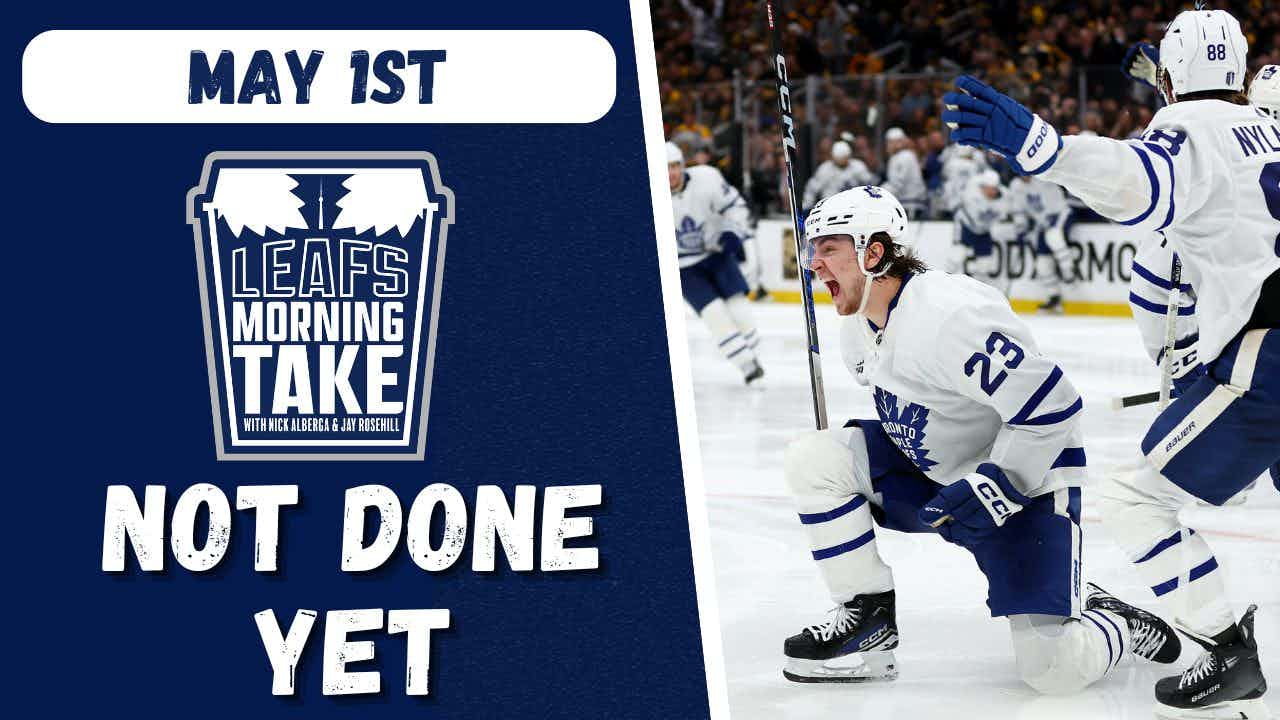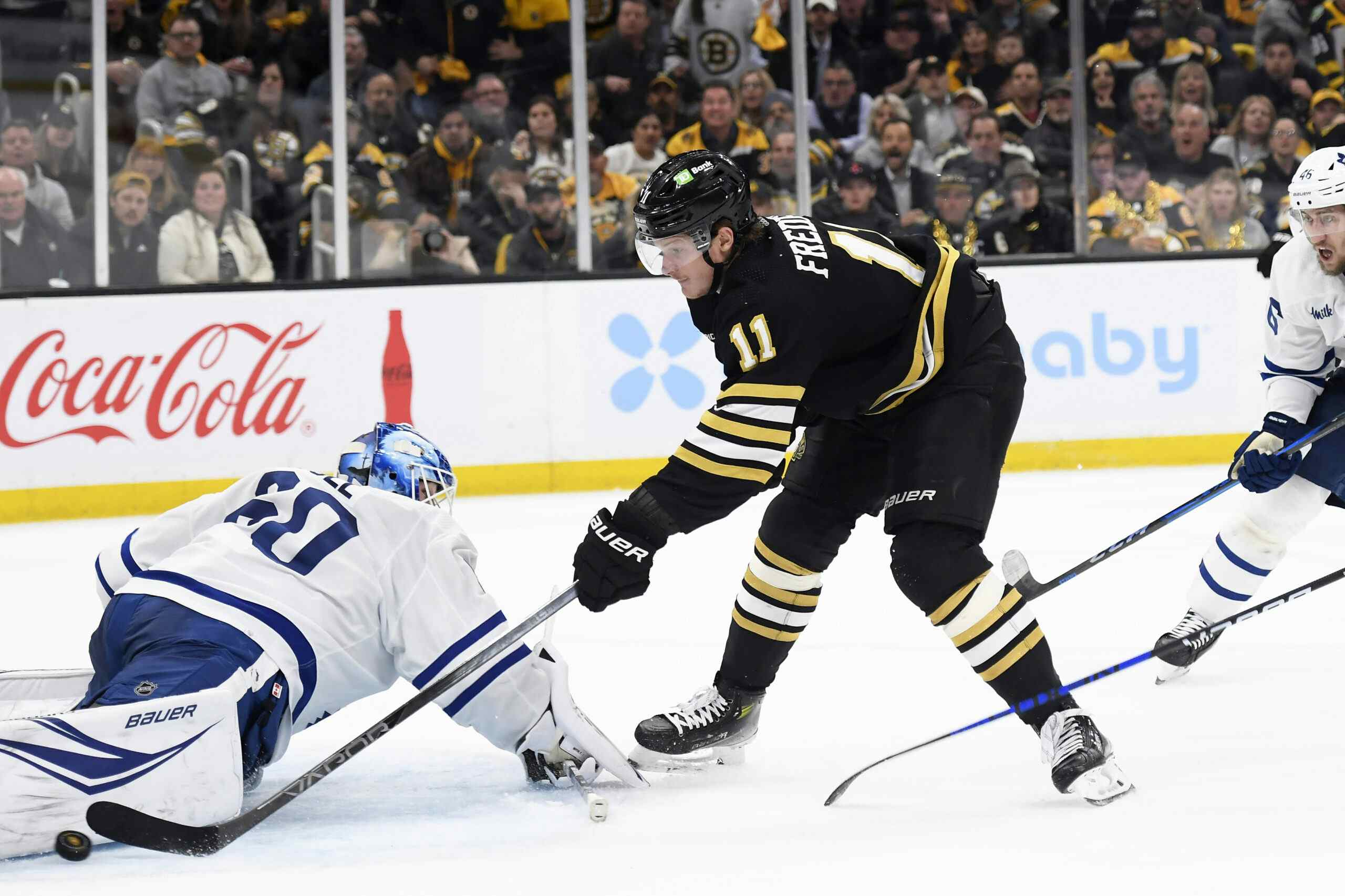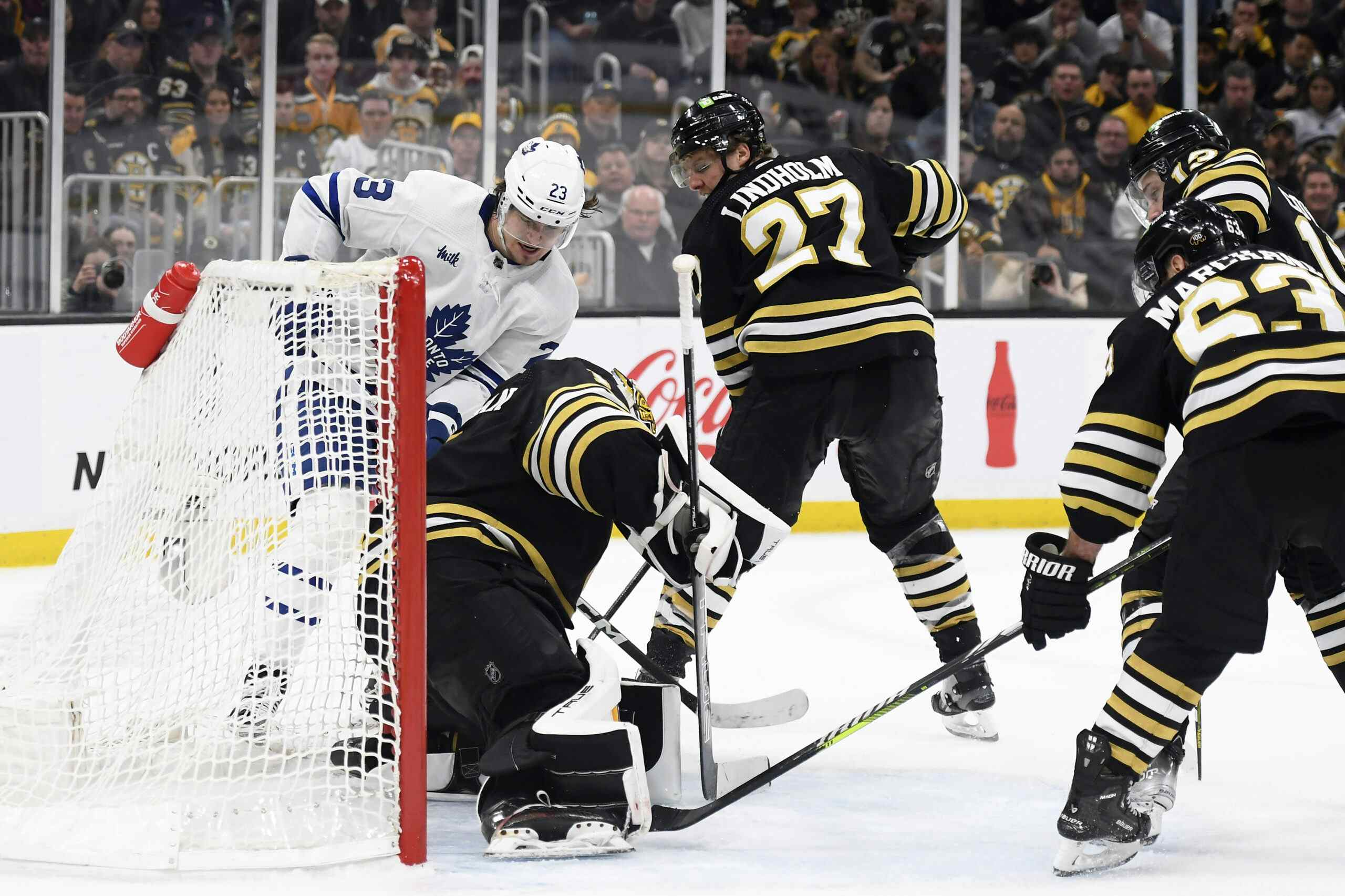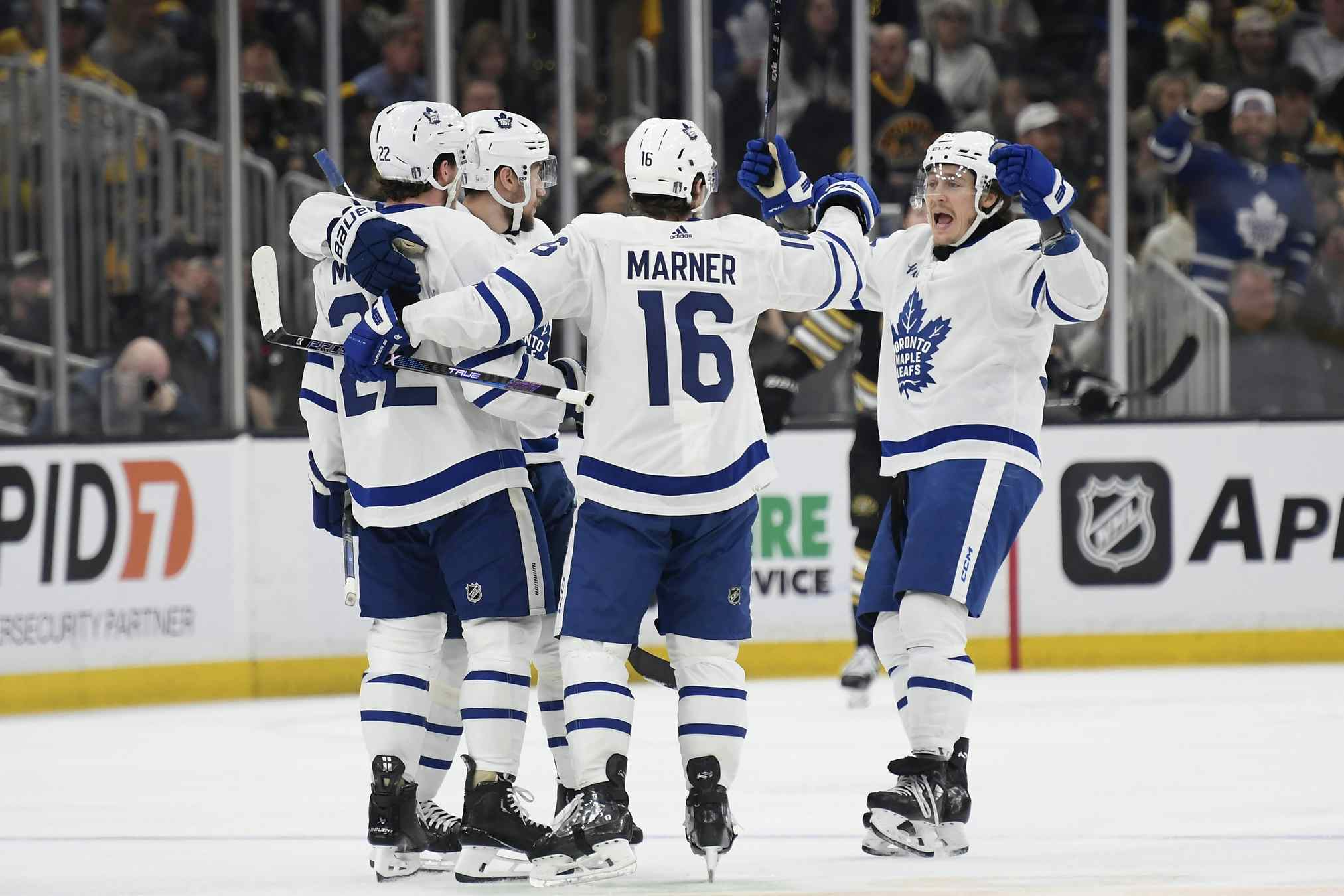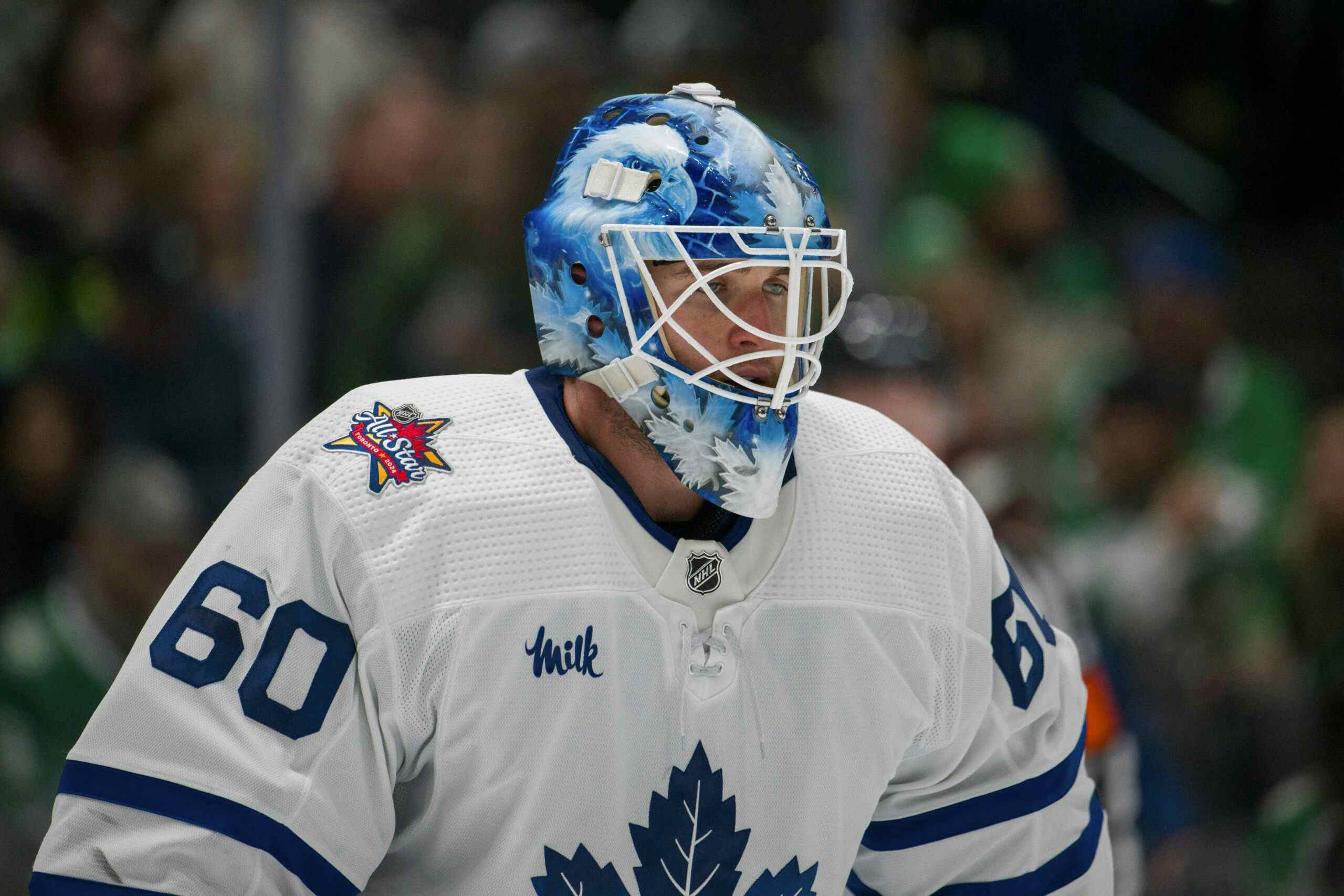The difference between disappointing and disappointment

Photo Credit: Christian Bonin/TSGPhoto.com
Even when the sheets showed 3-0, both in the series and in Game 5, there wasn’t much of a sense of inevitability. After all, the Toronto Marlies had come back from some crazy deficits throughout the season and winning four in a row happened significantly more frequently for the team than losing four of seven.
But Sunday night was the night where the hockey gods decided that the Marlies had cried wolf just a few too many times, and while they got to within a goal of the Hershey Bears, they couldn’t find that equalizer. The season was over, perhaps earlier than expected.
This was a season of polarizing expectations for the Leafs organization. I don’t mean polarizing in the journalistically traditional sense of “everyone argued with each other”, but rather that the Leafs and Marlies had two completely different end goals from the eyes of the fans.
Up in the NHL, the expectation was no expectation. People were going to be surprised whenever they won a game, unsurprised when the team finished 30th, and happy when it was over. After all, they looked like a fringe NHL team on paper. With the Marlies, they were going to be surprised whenever they lost a game, unsurprised when the team finished 1st overall and upset if it ended with anything less than a Calder Cup. After all, they looked like a fringe NHL team on paper.
That’s a weird position to be in, but both sides got to work. The Leafs were impressively competitive and impressively awful at the same time, finding a way to be one of the best performing last-place teams of our generation. Not exactly something that you pull out for bragging rights, but also not as shameful as being a smouldering trash heap. The Marlies, on the other hand? They chased history.
Toronto’s 54-16-6 record was not just the best in the league but tied for the third-best in history. They scored 103 goals more than their opponents. For a stretch, they possessed a quarter of the league’s positive goal differential. They would blow teams away by 5, 6, 7 goals just because there wasn’t much better to do. They’d have bad nights where they’d let in eight goals, but still score nine. Players would get into the thick of the league scoring race, get pulled out of the lineup, only to see one of their teammates fill in the gap.
At some point, you figured that the team would slow down, but it never really came. They dropped just one point during a 7-game road trip in November and won the game before and three after it. They would often have a four or five game streak get snapped, only to go on another. William Nylander and Kasperi Kapanen headed to the World Juniors and the team kept winning. Half the core joined the Leafs at the deadline and, once they adjusted, they kept winning. Nobody seemed ready to stop them, and the expectation grew.
After all, when you’re a team full of young prospects that’s making a mockery of the rest of the league, you should be able to keep that going, right? Fast forward to 15 playoff games later. If I told you that they won all of them and swept the playoffs, you’d probably be less surprised than if I said they were eliminated in a five-game series. But here we are.
Is it a disappointing end to a dominant year? Absolutely. Only the 1993 Binghamton Rangers possessed a better record without going all the way to win the championship; the other four teams in the “Big 6” cruised through. Many felt that the players who were on last year’s team that rallied into the playoffs only to get reverse swept by Grand Rapids would help them shake through any road blocks. Just as many felt the wouldn’t need that.
But assumption of dominance, to turn “disappointing” into “disappointment” is a slippery slope. The best team in any league, historically, is the most likely to go on to win in the playoffs, but it’s far from a guarantee. That’s why we have people who declare the NHL’s Presidents Trophy a “curse”; it carries the highest historical odds, but attaches an overestimated assumption that the team is destined to win.
The playoffs change a lot of things. Teams that gave it their all in the regular season can find themselves too gassed. Teams who won effortlessly might not have the mental preparation to react to a big loss. Oppositions might be able to find more ammo to use against you in the video, now that it pertains to them in the immediate. Maybe a player gets injured. Or maybe, you have to deal with hot sticks and goalie mitts, who could change the course of even the most lopsided series from an X’s and O’s standpoint.
The Washington Capitals have been arguably the best regular season team in hockey over the past several years and had one of the best records of our generation this year. They still can’t reach the second round, and almost every time, it’s been a Vezina calibre goalie in front of them. The San Jose Sharks are in the Stanley Cup Finals now, have been labeled as chokers for the better part of a decade because their good teams have fallen just short of round advancement in a few close series’. Even if you cross sports, you have a team like the Golden State Warriors who still appear to be NBA title favourites, but certainly haven’t had playoff results that reflect a team that went 73-9.
Did similar happen with the Marlies? Yes and no. Truthfully, they probably got lucky in the Albany series; Rick Kowalsky’s group of veterans often controlled the flow of the games and until Toronto cracked Scott Wedgewood, it seemed like the Devils were going to come out on top. That would have been even more of a blow to the populace, especially given the less-than-clean nature of the series, but they managed to escape by persevering through it and showing up in a pivotal Game 7.
This serious, though, seemed at times like a combination of a few factors. Not to discount Hershey; they’re a great team and they’re built to win in the postseason. But the Marlies outshot them by an average of six shots per game; eight if you subtract the 8-2 blowout. But Justin Peters remained a well above average 0.917 in the series, and Toronto’s goalies threw the crowd back to the 80’s with a 0.850 showing over the five games. Both teams received goaltending that was well outside of the norm for them in opposite directions, and for the Marlies, that meant a quick death. Stretch this series out to a full season, and Toronto likely wins quite a few more games, but reality doesn’t work like that.
That doesn’t absolve the skaters entirely, though. At times in these playoffs, it seemed like the team seemed unprepared for the possibility of losing. Players would stop communicating with each other and try to do things themselves, or they’d just give up entirely; traits unlike what we had seen throughout the year. If you remove those pockets and replace them with their more aggressive efforts, does it reverse the tide enough to win them the games necessary to move forward? You can’t say for sure, but it probably would have helped.
Whatever the case is, these are the cards that have been dealt. The team’s season ends at 91 games played, and seven wins short of the expectation. But as Sheldon Keefe put it after Game 5, a letdown ending may not be the worst thing for the team. “When you play in the playoffs, the experience is what’s valuable for these guys,” Keefe said. “The experience of winning is one thing, and that’s a valuable, rewarding thing. But not everybody gets to win, so when you don’t, you need to make sure that you still find value in what you’ve been through.”
Certainly, this is a group that can find value. Many of it’s youngest players took huge strides in the regular season, and while winning would’ve been nice, knowing the gravity of not reaching expectations before graduating to the NHL is just as useful. It’s a disappointing end, but to call the season a flat out disappointment is unfair to the eight months that transpired.
Recent articles from Jeff Veillette

